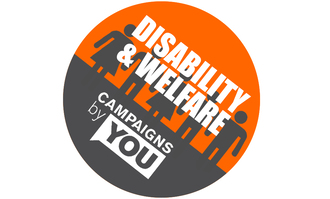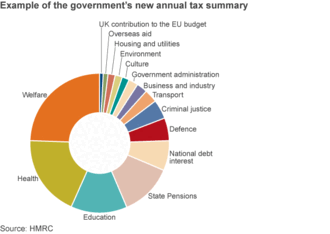-
Revoke or Amend S.I 2015 No.138 & Save LivesThe court can only order exemption, if satisfied that the dog is not a danger to public safety; the court must now look at the temperament and past behaviour of the dog, whether the applicant is a ‘fit and proper’ person to be in charge of the dog and any other relevant circumstances. The changes will affect and be a death sentence to exempted dogs, much loved family members and companions - dogs which have already been found by a court of law, not to be a danger to public safety. The changes are draconian and do nothing to protect public safety. A family canine member may need to be appointed a new person to care for it, for a variety of reasons, including, housing issues, accident/injury, employment/work commitments, family commitments, divorce/separation. Due to the changes, someone can ONLY apply via a court application, which will be a complicated process for the average person to follow, to be the keeper if the previous person in charge of the dog is either dead or seriously ill. A non-legal person i.e. a rescue/animal welfare charity/company/local authority already registered or about to be registered as the owner on the exemption certificate should be able to re-home their exempted dog via a keepership change without restriction and appoint another registered keeper to the one appointed for any reason deemed necessary, thus saving the dog’s life. If the person to whom the exemption certificate has been issued is away and at a different address to their dog for more than 30 days over the course of a year, according to the new rules set out under SI 138, the dog must die; However, anyone for example who is regularly working away from home, visiting family, undergoing medical treatment/hospitalisation, travelling/working overseas, could be affected and their dog destroyed. This cannot be fair nor just, it is not necessary4,278 of 5,000 SignaturesCreated by DDA Watch
-
STOP PUNISHING VICTIMS OF CHILD SEXUAL ABUSE!The Criminal Injuries Compensation Authority (CICA) currently compensate 'blameless victims of crimes'. However, they also state 'We may refuse or reduce a payment if you have a criminal record, even though you may have been blameless in the incident which resulted in your injury'. As somebody who works in the legal profession representing victims of abuse, I have witnessed victims of abuse (whose abuser has been convicted) refused compensation on the basis that they have unspent criminal convictions. Some victims were drugged, laced with alcohol and forced to commit crimes by their abusers - they too have been refused compensation because they have 'unspent convictions'. These people were CHILDREN who were abused and put in that situation and CICA are punishing them for their abuse. Common symptoms of those who were or are being abused are anger, use of drugs and alcohol, committing crimes and lashing out because they want to be heard and helped. Their experiences will be with them for the rest of their lives and they will never be able to regain their childhood or live a normal live. These issues were submitted to the government last Autumn but to date they have failed to acknowledge the correspondence sent to them. Is this being swept under the carpet too? These victims need help to rebuild their lives, not to feel they are being punished by CICA: A government run organisation!6,107 of 7,000 SignaturesCreated by Odette Tovey
-
Council tax revaluation pledged by all partiesMost of those who have the option will always be tempted to avoid paying their fair contribution to support the old, the sick, the disabled and those trapped in poverty. This way those who enjoy the benefits of better housing have to pay more than those who don't.70 of 100 SignaturesCreated by David Lewitt

-
Stop the penalisation of long-term, legal migrants.Without warning, the 2014 Immigration Act imposed upon long-term, legal UK migrants the requirement of a No Time Limit Document, to present as legal proof of their Indefinite Leave to Remain, when seeking employment, (in some cases, housing) or access to benefits, for which some have been paying for decades. The postal application for an NTL Document costs £104.00 and takes and unacceptable SIX MONTHS to process. (There is a Premium One-Day Service which costs a casual £504.00 for the privilege of jumping the queue.) Without the NTL Document, long-term, legal, migrants (In my case - as a Canadian national, I have lived in the UK 34 years, payed taxes and NIC, and I am on the electoral-roll.) are held in a limbo where we can not take up new employment, nor access benefits such as job-seekers' allowance (despite funding NIC for decades) In a bid to see that we law-abiding, non-threatening people can be allowed to carry-on taking part and contributing to UK society, (as we were doing, unmolested, before May 14, 2014), I have contacted all parties at Westminster regarding this issue, and I have even spoken with the Deputy Prime-Minister about this. After months of having this life-affecting issue treated with indifference, or trivialised, it is apparent to me that to put right this collateral damage, caused by the 2014 Immigration Act, the government would have to 'spend money', a notion anathema to it's ethos. (particularly where 'people on the pavement' are concerned.) Additionally, this is an IMMIGRATION issue which is the Coalition Government's Achilles-heel. Those of us thrust into poverty or financial-hardship by this sloppy-legislation are battling with an ideologically-obdurate government, committed to BURYING this embarrassing issue. Through this legislation, Theresa May's headline-grabbing "hostile environment" is penalising innocent people! There are thousands of us affected by this (Some ILR holders won't be aware of this issue until they apply for their next job) I invite anyone, adversely affected by the 2014 Immigration Act, to join me in plying pressure on this government, and the government elected in May, to do the decent thing, and treat legal, law-abiding immigrants fairly.123 of 200 SignaturesCreated by Stuart Calvert
-
A national parliament for EnglandBecause solely the 85% of the UK's voters in England are denied the same degree of self-determination enjoyed by voters in Scotland. Consequently, there is no England voice. Nor do the people of England have their own separate Bill drafting facilities, nor Executive, nor Budget to administer devolved matters including NHS, Education, Social Care, Housing, Transport, Sport and local government as counterparts to those in Scotland. Equality and fairness dictate that England should be accorded a referendum. Wales was given a second referendum in 1997 despite having previously rejected a Welsh Assembly [80% voted 'No' on a turnout of 60%.], but England has never had her own referendum. Consequently, the British Parliamentary system is seriously flawed, indefensible, unrepresentative of England's interests and, ultimately, unsustainable.284 of 300 SignaturesCreated by Alan England
-
Deaths and the Sanctioning PolicyMalcolm Burge set fire to himself in Cheddar Gorge, after being told he was subject to court action for £800 by Newham Borough Council, after his Housing Benefit was cut in half. Malcolm had written often to Newham Borough Council to tell them that he couldn't pay, he had never had that amount of money, and that he was suicidal. Also, David Clapson, who died after his benefits were stopped. He then had no money for food, had no money for electric to keep the fridge going that had his insulin in. The coroner stated that David had no food in his stomach and £3.44 in the bank. Esther McVey (The previous Employment Minister) stated to MPs that there is no link between the deaths and the sanctioning policy and that 'we ensured that all of our processes correctly'. If there is no link between the stopping of benefits and the deaths of 49 benefit recipients, why won't the DWP release the reviews? The sanctioning policy needs to reviewed when used in relation to vulnerable people, not used as a blanket policy.12,936 of 15,000 SignaturesCreated by Linda Theaker
-
Exit Timeshare contracts - they shouldn't be for life!Many timeshare contracts are for 54 years without exit clauses. The contacts pass on to children and grandchildren irrespective of ability to pay or ability to use the holidays even in cases of ill health. An example of a 80 year old lady having to pay almost a £1,000, pa for holidays which she could not physically use nor afford. Timeshare providers are now offering vacations to the general public at rates which are less than members pay, and at all times of the year using exactly the same facilities. Initially timeshares were sold as exclusive deals. However, it is still not possible to exit timeshare contracts. Timeshare clubs use the excuse, 'by letting it to non members use the facilities it keeps the maintenance charges down'. Latest scams/deals request exiting timeshare holders to pay in excess of £10,000 to change their current contracts to 15 year contracts again unrealistic if elderly, ill or with no ability to pay crippling costs373 of 400 SignaturesCreated by Milton Pearson
-
Rights for People with Disabilitiesdisabled are bearing the Brunt of the Cuts to Public Services and Benefits which is wholly Unaccepatable and Unfair in Society that shouldlcare for the less fortunate that are afflicted by serious health conditions ,not of their Choosing. Poverty caused by illness People using Foodbanks to feed themselves and families access to Medical Treatment limited by cuts to NHS front line services. a Disable treated Unfairly given Sanctions and left to Struggle .Equality and Parity of Esteem accorded to. Social Wage given instead of a cluster of Benefits Opportunities for Educational Advancement,Retrainingtion g and Rehabilitation,. Building Social Housing that is Adapted for Disabled Usage and equipping Public Amenities for Acess ie Day Centres ,. The application of Human Rights Laws efficacy when denied Support by Social Care and successful appeals to European Courts where there has been a breach of the statutory "Duty Of Councils and Health Departments..66 of 100 SignaturesCreated by jonathan bellini
-
Stop the Counter Terrorism and Security BillPlease sign the petition to stop this government rushing through legislation that has the power to impact on all our lives not just the Muslim community. This year is the 800 year anniversary of the Magna Carta, this bill seeks to undo the very principles signed 800 Years ago. In the guise of fear mongering and scaring the wider community about Islamist extremist and criminalising the whole of the Muslim community, this bill will erode the civil liberty of all people and all communities. For further details please see www.stopthebill.co.uk or sign this petition It is an erosion of civil liberty, fair trial, the freedom to travel and justice for all.48 of 100 SignaturesCreated by shahida siddique
-
Apply the Benefit Cap to MP PensionsMP's should not earn more when they're not working than Hard Working Families who have to support them. MP Pensions are catagorised as Welfare in the HMRC's Tax Summary, being posted to every tax-payer, but are not subject to any Welfare regulation, while JobSeekers Allowance only accounts for 3% of the Welfare Catagory. The purpose of the Benefit Cap is to prevent people, regardless of circumstances, who are not working from earning more than Hard Working Families.154 of 200 SignaturesCreated by Dr. Stephen Lathwell
-
Stop the Snooper's CharterThe proposals, which will compel telecoms companies to retain data about customer calls and internet usage for one year, comes after Prime Minister David Cameron vowed to crack down on encrypted communications over the internet. But encryption is a normal part of internet security. This is dangerous nonsense. Besides, it doesn't make us any safer. In fact, the recent shocking murder of Lee Rigby was facilitated by the fact that our security agencies have too much useless information to wade through, much of which returns false positives during keyword searches because people talk about what happened in the films or programmes they've seen, or mention that something they bought cost a bomb. They are too busy sifting through all that trying to find any useful data to go about the business of catching criminals and stopping terrorists. Indeed, most of the high profile arrests made lately were for making abusive or foolish comments online. They're not catching terrorists or criminals, they're catching people who make fools of themselves online. We are no safer. "In our country, do we want to allow a means of communication between people which we cannot read?" he asked rhetorically in justification. "In our country, do we want to force people to leave their doors and windows open to let the law enforcement and security agencies in as and when required? Do we want to grant them instant access to all our private business without question?" FIFY, Dave. Further reading - http://www.computing.co.uk/ctg/news/2391667/-snoopers-charter-sneaked-in-to-counter-terrorism-bill Please sign this petition. We stopped the Snooper's Charter for a reason. They should NOT be allowed to sneak unwanted legislation back in under the guise of amendments to existing laws. It's anti-democratic. UPDATE: A last-minute attempt to revive a "snoopers' charter" before the general election has been dropped... The BBC understands they will try again next week unless the Home Office publishes a government redraft of the bill, of which the Lords has been told... In response, the peers withdrew the proposed amendments, which threatened to enshrine the controversial measures in law, and called on the government to produce its draft... A source told the BBC that if the Home Office was to refuse that request, the "snoopers' charter" proposals would be revived once again and added to the draft counter-terrorism legislation. http://www.bbc.co.uk/news/technology-31001575 Can you BELIEVE these people? Lord King is a former Conservative defense secretary, Lord Blair is a former Metropolitan Police commissioner, Lord West is a former Labour defense minister and Lord Carlile is a former Liberal Democrat reviewer of counter-terror laws. Each of them was around during the Troubles when attacks were taking place in mainland Britain and they weren't calling for mass surveillance then. Like The Terminator, they'll be back. We need to show them that we know this and that every time they try to put this in, we will be right there to yank it back out. Please keep signing this and please use https://www.writetothem.com/lords to write to each of the lords involved in this atrocious attempt to undermine our right to privacy.2,169 of 3,000 SignaturesCreated by Wendy Cockcroft
-
The truth about the new state pensionI believe that the government has totally misled the electorate regarding the introduction of the new state pension in 2016.Mr Cameron's pitch at the launch in 2013 promised that "the idea here is that for new pensioners in 2017 instead of the £100 or so basic state pension it'll be over £140" This promise has been repeated and reinforced by other government members such as Steve Webb and Ian Duncan Smith. Consequently, most people retiring after 2016 believe they will receive a state pension in excess of £150 a week. This is completely untrue and misleading. Firstly, anyone of the millions of people in an occupational pension were automatically opted out of paying additional state pension contributions .All of these people, providing they have paid 35 years NI, will only receive the old state pension of £113/week. Those who paid into "the additional state pension" will receive, quite correctly, what they would have been due under the old system The question to ask, therefore, is who actually is better off under the new system. The truthful answer is very few people. For the majority nothing changes. There will be only gradual increases to the state pension as people pay the increased NI contributions .Only in 30+ years will David Cameron's promise of equality for all be true. Unsurprisingly, the government has been" economical with the truth" It is all "smoke and mirrors"- a cheap headline and vote winner. My intention is to highlight the situation so that millions of people are not misled into expecting far more than they will actually receive. I want the government to admit their inaccurate rhetoric and publish a true and accurate guide of future state pensions.122 of 200 SignaturesCreated by john delller
Hello! We use cookies to improve your experience by providing insights into how the site is being used. Find out more.












